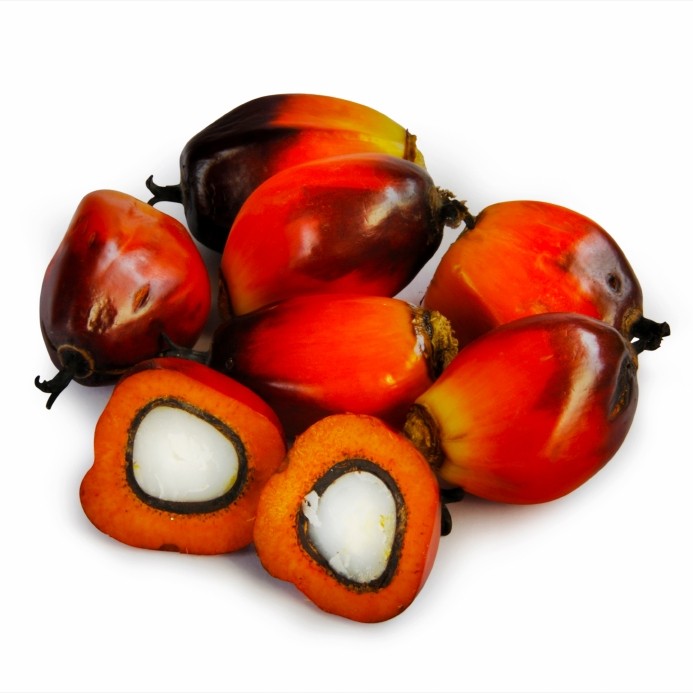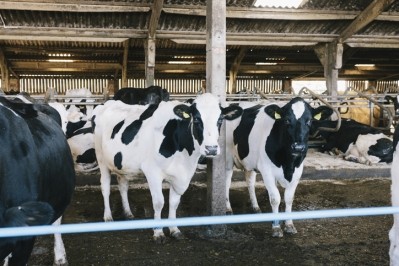AIC launches new palm oil credit purchase scheme

The AIC, which represents companies that, combined, produce over 95% of the compound animal feed marketed in the UK, said by purchasing RSPO Credits, a business can directly support those palm growers who have changed growing practices to meet all the RSPO principles and criteria to produce Certified Sustainable Palm Oil (CSPO) products.
Most palm oil is produced in South East Asia, mainly Malaysia and Indonesia. Its production is associated with deforestation and climate change, loss of habitat for orang-utans and other diverse species, use of peat resources and exploitation of plantation workers. RSPO standards are set to avoid these adverse effects.
The UK government is committed to securing a 100% sustainable palm oil supply chain by 2020; AIC said APOCS provides the feed sector with a simple means of moving towards this target and demonstrating to customers a commitment to sustainable products.
Member companies using APOCS can apply the RSPO Credits logo on their packaging to demonstrate commitment to sustainable supply chains, it added.
AIC estimates that the UK feed industry uses between 40 to 50,000 tons of palm oil each year. Most of it is included in blended fats for ruminant feeds along with palm fatty acid distillate (PFAD) and mixed soft acids. AIC estimates PFAD usage at 16-20,000 tons annually.
Palm oil is used across the feed sector as a vegetable source of fat, fatty acids and tri-glycerides. Fats and oils are used as energy sources, to supply dietary essential fatty acids -linoleic and linolenic acids - that cannot be synthesized by the animal, to aid in the absorption of fat-soluble vitamins, and to provide specific bio-active fatty acids.
Source: AIC
We carried out a Q&A with Roberta Reeve, technical manager, AIC Services, to hear more about the new palm oil credit scheme, the demand side, and work to date by the RSPO on sustainability.
FeedNavigator: What percentage of the palm oil purchased by the UK feed sector is currently covered by RSPO Credits?
Roberta Reeve: This is estimated at below 40%. Previously the feed sector was about 90% covered by the earlier Green Palm scheme. Once this ceased to operate and was replaced by RSPO Credits, the uptake to regain that level has been slow. APOCS offers a simple way for the UK feed sector member to return to a higher level of participation.
FEN: Is there UK market demand, from retailers or farmers, for example, for sustainable palm oil use in feed?
RR: Retailers are seeing consumer awareness of palm oil issues increase on food products and they have clear policies on replacing it or using sustainable sources for their own brand products. The general market trend is to move towards a sustainable supply chain.
Farmers and retailers are both users of animal feed and are included [as part of the agri-food supply chain] under the UK government target of sourcing 100% sustainable palm oil by the end of 2020 – agreed in the Amsterdam Declaration in 2015.
FEN: What constraints are preventing the UK feed sector from going down the mass balance or fully segregated road in relation to supporting sustainable production of palm oil?
RR: The main constraints are resource, cost and availability. The RSPO Credits scheme requires a business to join as a RSPO member, which has an annual cost, and to have a system to trace all purchases of palm oil, completing audits and annual progress statements as required. Palm oil may be only a small proportion of a feed [formulation] and the resource required to maintain the system is therefore relatively high.
AIC is an RSPO affiliate member and APOCS effectively does the work for the feed business for a small management fee.
Availability can also be a constraint – the volume of palm oil produced sustainably that falls into the segregated supply chain is increasing all the time but is still limited and may not be a commercially viable option. Mass Balance supply of palm oil is more widely available, and a business could join RSPO individually to support sustainable production in this way.
FEN: Does APOCS cover the feed sector’s use of palm kernel expeller (PKE) meal as well?
RR: Currently the scheme is for palm oil only. PKE use could be added to APOCS remit if required by the industry.
An update of the work of the UK Roundtable on Sourcing Sustainable Palm Oil, published in November 2018, looked at the challenges linked to sustainable sourcing of palm oil and derivatives such as PKE by the UK feed sector.
FEN: What evidence is there that RSPO is making inroads in terms of the negative aspects of palm oil production in South East Asia?
RR: RSPO is a not-for-profit organisation that unites stakeholders from the seven sectors of the palm oil industry: oil palm producers, processors or traders, consumer goods manufacturers, retailers, banks/investors, and environmental and social non-governmental organisations (NGOs), to develop and implement global standards for sustainable palm oil.
The RSPO has developed a set of environmental and social criteria that companies must comply with to produce CSPO. When they are properly applied, these criteria can help to minimize the negative impact of palm oil cultivation on the environment and communities in palm oil-producing regions.
It has more than 4,300 members worldwide who represent all links along the palm oil supply chain. They have committed to produce, source and/or use sustainable palm oil certified by the RSPO.
RSPO now certifies 19% of global palm oil production as sustainably produced. This equates to 14.3m tons of palm oil, grown on just under 4m hectares of land. While there is still a long way to go, inroads are being made, with a major focus on engaging smallholders to help them use sustainable practices, receive a fair price for their produce and operate in a way to avoid child labour, and allow improved education availability.
The RSPO Impacts report for 2018 shows that there has been steady growth for sustainable palm oil and RSPO membership across various markets, including a 15% growth in overall RSPO membership, a 23% increase in sales of physical CSPO, and an 83% increase in total certified area cultivated by RSPO independent smallholders under group certification.
Certified area in Latin America has increased by 15%, and the area in Africa has nearly doubled since June 2017. Moreover, there has been a 39% increase in High Conservation Value (HCV) area identified and managed by RSPO certified members.
The RSPO board has endorsed a new set of Principles and Criteria and was put for adoption by the RSPO members at its general assembly in November 2018 in Kota Kinabalu, Sabah. Full implementation of those is set for November 2019.
Moreover, RSPO is regarded as having the most clearly explained and strongly worded principles, criteria, indicators, guidance and requirements for compliance with environmental provisions.














